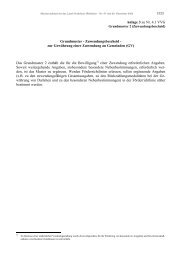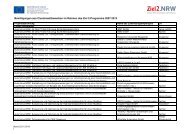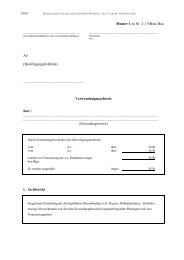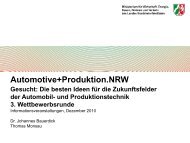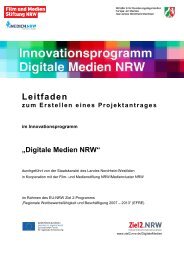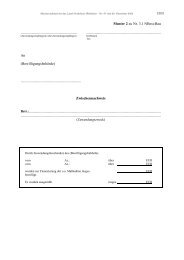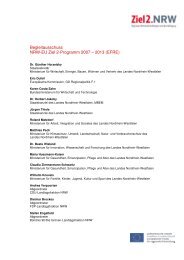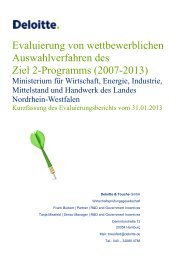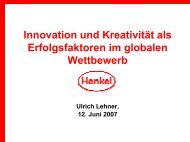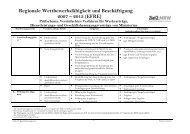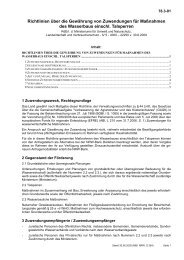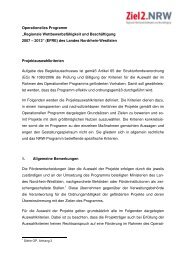Synthesis Report - European Commission - Europa
Synthesis Report - European Commission - Europa
Synthesis Report - European Commission - Europa
You also want an ePaper? Increase the reach of your titles
YUMPU automatically turns print PDFs into web optimized ePapers that Google loves.
Ex-post Evaluation of the ERDF 2000-2006<br />
<strong>Synthesis</strong> <strong>Report</strong><br />
Other, less tangible, aspects are even more difficult to find indicators for, such as the natural or<br />
physical environment or the quality of life which people living in different places enjoy, which<br />
were aspects that cohesion policy was aimed at evening up over the period. Measurement<br />
problems, however, should not mean that aspects of this kind are ignored when judging the<br />
performance of cohesion policy, even if they can only be taken into account in qualitative rather<br />
than quantitative terms.<br />
The same applies to territorial cohesion which is equally difficult to find indicators for, though<br />
those used to assess social cohesion might also be relevant.. Since improving the territorial<br />
balance of development was an important aim of policy in many cases across the EU, the outcome<br />
in this regard also needs to be assessed in qualitative terms.<br />
Both social cohesion and territorial balance are also relevant for assessing the sustainability of<br />
development which is a key objective of cohesion policy, since in the absence of the two,<br />
development is unlikely to be sustainable for any length of time. Equally, of course, sustainability<br />
implies that development is not at the expense of environmental damage, increased emissions,<br />
the loss of natural assets and the depletion of exhaustible resources. Indicators of these are just<br />
as important in assessing how far this objective is being achieved. As for the other aspects, they<br />
largely remain to be developed.<br />
2.4 MAIN POINTS TO EMERGE<br />
The main points to arise from the analysis of regional developments over the programming<br />
period are:<br />
• Growth of national economies which formed the context in which regional development in<br />
the EU15 took place over the period varied markedly; in particular, it was relatively high<br />
and, accordingly, favourable to development, in Greece and Spain, as well as Finland,<br />
Sweden and the UK, and relatively low, and less favourable in Germany, Italy and Portugal.<br />
• The restrictive nature of budgetary policy was reflected in a significant reduction in public<br />
investment in Portugal over the period; in Germany, Austria, Belgium, and Italy, policy<br />
restriction meant that public investment was relatively low over most of the period. In<br />
Greece, public investment was expanded markedly up until the Games in 2004 and was<br />
then reduced.<br />
• The continuing process of globalisation reinforced by EU enlargement led to increasing<br />
competitive pressure on producers in traditional industries in the EU15 as well as those<br />
specialising in labour-intensive activities more generally; many of these were located in<br />
lagging regions and others receiving funding under cohesion policy. Accordingly, growth<br />
in these regions might be expected to have been less than elsewhere over the period other<br />
things being equal.<br />
• Growth of GDP per head over the period 2000-2006 was higher on average in Objective 1<br />
regions in the EU15 than in non-assisted regions. This was also the case in all EU15<br />
Member States, with the sole exception of Hainaut in Belgium. In the EU10 countries, the<br />
already high growth rates increased further after accession.<br />
• Growth of GDP per head in regions receiving significant amounts of funding under<br />
Objective 2 was also slightly higher on average than in non-assisted regions over the<br />
period.<br />
63



